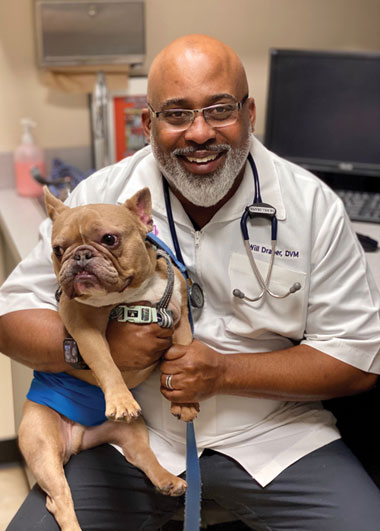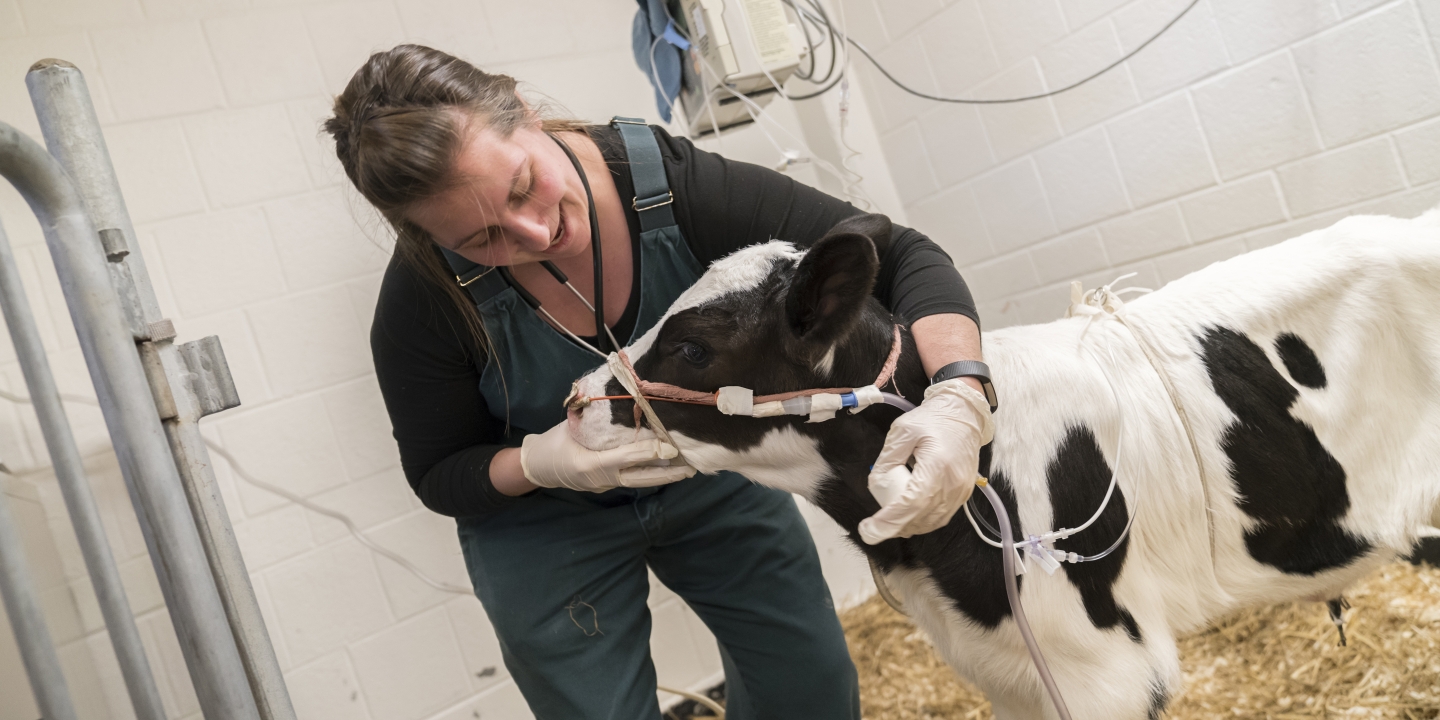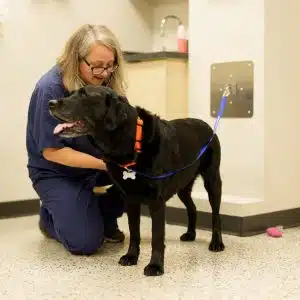How to prepare before your pet’s Pet Cancer Surgery
Wiki Article
Comprehensive Guide to the Solutions Supplied by a Veterinary Oncologist
Vet oncology includes a vast range of solutions focused on detecting and treating cancer cells in pet dogs. Pet Cancer Surgery. Oncologists employ innovative diagnostic methods and supply numerous treatment options customized to each animal's demands. They likewise focus on encouraging treatment and supply important resources for pet owners. Understanding these services is vital for making informed decisions. What particular facets of vet oncology can notably affect an animal's therapy journey?Understanding Veterinary Oncology
Vet oncology is a specialized area concentrated on identifying and treating cancer cells in pets. This self-control includes a large array of approaches, from medical therapies such as chemotherapy and immunotherapy to surgical interventions focused on getting rid of lumps. Vet oncologists are educated to acknowledge the unique indications of cancer cells in various varieties, allowing them to customize therapy strategies to private clients.Along with standard treatments, vet oncology highlights encouraging treatment, which plays a necessary function in enhancing the quality of life for afflicted pets. This includes discomfort management, dietary support, and palliative care choices. Partnership with pet dog proprietors is critical, as they are essential to decision-making regarding their pets' therapy paths. As study breakthroughs, vet oncology proceeds to advance, offering new hope and improved results for pets diagnosed with cancer. Generally, this field is essential for resolving the intricacies of cancer in buddy pets.
Advanced Diagnostic Techniques
Advanced diagnostic strategies play a crucial function in veterinary oncology, supplying important insights right into the visibility and level of cancer cells in pets. Imaging modalities such as ultrasound, CT scans, and MRI are generally utilized to imagine lumps and analyze their qualities. Additionally, biopsy procedures are essential for acquiring cells examples, enabling for conclusive diagnosis and customized treatment plans.Imaging Modalities Utilized
Imaging methods play a vital role in the diagnosis and monitoring of cancer cells in animals. Veterinary oncologists use different sophisticated imaging strategies to analyze growth dimension, existence, and metastasis. Radiography, or X-rays, supplies a preliminary view of bone and breast conditions, while ultrasound gives real-time imaging of soft cells, permitting for in-depth examination of inner body organs. Computed tomography (CT) enhances visualization of complicated physiological structures and allows 3D repairs, aiding in specific growth localization. Magnetic vibration imaging (MRI) is indispensable for soft tissue distinction, particularly in mind growths. Additionally, nuclear medicine methods such as positron emission tomography (PET DOG) aid identify metabolic task within tumors. Collectively, these methods boost analysis accuracy, leading effective therapy methods for oncological individuals.Biopsy Treatments Explained
Following the first assessment through imaging methods, obtaining a conclusive diagnosis frequently needs tissue tasting with biopsy treatments. Vet oncologists utilize different biopsy techniques based on the growth's place and attributes. Fine needle aspiration (FNA) is a minimally intrusive method that extracts cells for cytological evaluation, perfect for shallow masses. Core needle biopsies provide bigger cells examples and are beneficial for deeper tumors, permitting histopathological analysis. Surgical biopsies involve excising a section or the entire lump, assisting in comprehensive assessment. These treatments not only validate the presence of cancer but additionally help determine its kind and quality, guiding therapy decisions. Each biopsy approach is chosen thoroughly to stabilize diagnostic accuracy with patient safety and security and comfort.Treatment Options for Cancer in Animals
When a pet dog is diagnosed with cancer cells, a range of therapy choices end up being available to assist boost and take care of the condition top quality of life. Vet oncologists commonly recommend a multidisciplinary technique tailored to the private animal's needs, which may include surgical treatment, radiation therapy, immunotherapy, or alternative treatments.Surgery is usually utilized to get rid of tumors and damaged tissues, potentially causing total remission in many cases. Radiation therapy intends to target and damage cancer cells, minimizing growth dimension and alleviating signs - Pet Cancer Surgery. Immunotherapy uses the pet's immune system to eliminate cancer cells a lot more efficiently, while alternate treatments could consist of acupuncture or natural supplements to support general wellness
Each therapy option carries its own benefits and threats, and veterinary oncologists work very closely with pet owners to develop a thorough plan that aligns with the pet's specific diagnosis and the owner's dreams. The best objective is to improve the pet's comfort and lifestyle throughout their cancer cells trip.
Radiation treatment for Pets
Radiation treatment is an usual therapy option for family pets diagnosed with cancer and is typically utilized along with other treatments outlined by vet oncologists. This therapy includes the administration of particular drugs made to destroy and target cancer cells, therefore minimizing tumor dimension and stopping the spread of the disease. Vet oncologists tailor chemotherapy methods based on the kind of cancer, the pet's general health, and the preferred therapy end result.Negative effects can occur, as these drugs might also influence healthy cells. Usual responses include nausea or vomiting, vomiting, and short-term adjustments in hunger - Board Certified Veterinary Oncologist. Vet oncologists are equipped to take care of these side impacts effectively, making certain the animal's convenience throughout the treatment process. Normal surveillance via blood tests and follow-up consultations is important to evaluate the pet dog's response to radiation treatment and make needed adjustments. Eventually, chemotherapy can supply significant advantages, enhancing the quality of life for pet dogs facing cancer medical diagnoses

Radiation Treatment in Veterinary Medication
Radiation therapy acts as a reliable treatment alternative for animals detected with localized tumors, using a targeted method to cancer cells management. This strategy uses high-energy radiation to harm the DNA of cancer cells, hindering their capability to multiply. It is especially beneficial for growths that are not responsive to surgical elimination or for situations where surgical treatment might not be possible as a result of the tumor's place.Vet oncologists tailor radiation protocols based upon growth place, type, and dimension, as well as the pet dog's overall wellness. Therapy can be provided by means of exterior beam of light radiation or brachytherapy, each with unique advantages. Usually, several sessions are called for to make best use of effectiveness while lessening side results.
Pets may experience momentary responses such as skin irritability, the overall purpose is to reduce lumps and alleviate signs and symptoms, ultimately boosting the pet dog's diagnosis and high quality of life. Accordingly, radiation treatment plays an important function in thorough cancer treatment.
Palliative Treatment and Lifestyle
Palliative treatment in veterinary oncology concentrates on boosting the quality of life for pets facing incurable ailments, ensuring convenience and self-respect in their final days. This specific technique focuses on discomfort administration, symptom control, and psychological assistance. Veterinary oncologists assess each family pet's individual demands, tailoring interventions to alleviate pain and enhance overall health.Methods may consist of providing medications for discomfort relief, taking care of queasiness, and addressing various other stressful signs. Additionally, nutritional assistance is commonly offered to keep strength and boost cravings. The emotional facet of palliative care is just as essential; developing a calm setting helps in reducing stress and anxiety for both animal and proprietor.
Ultimately, the objective of palliative care is to enable pet dogs to enjoy their remaining time with as much pleasure and dignity as feasible. By concentrating on comfort and lifestyle, veterinary oncologists play a vital duty in guaranteeing that pet dogs and their families browse this tough journey with compassion and understanding.
Assistance for Pet Dog Owners During Treatment

Psychological Assistance for Proprietors
Charting the psychological landscape during a family pet's cancer cells treatment can be an overwhelming experience for proprietors. The unpredictability surrounding medical diagnosis and diagnosis can result in sensations of helplessness, despair, and anxiety. Vet oncologists recognize the significance Veterinary Oncology Services of psychological support and usually give guidance to help owners browse this hard journey. Communication is necessary; discussing treatment choices and prospective end results can relieve some fears. Additionally, providing peace of mind that emotional reactions stand fosters an encouraging atmosphere. Lots of oncology centers might likewise recommend support system or therapy solutions customized for pet proprietors, facilitating common experiences. Urging proprietors to prioritize self-care during this time is vital, as their emotional health directly affects their family pet's convenience and general treatment experience.
Resources and Educational Products
Steering through the complexities of a pet's cancer cells treatment can be intimidating for owners, making access to trustworthy resources and instructional materials essential. Vet oncologists typically provide a variety of handouts, brochures, and online products that explain therapy options, prospective side impacts, and care methods. These resources assist debunk the process and encourage animal proprietors to make informed decisions. In addition, many oncology centers supply access to support teams and forums where proprietors can connect with others dealing with comparable challenges, promoting a feeling of area. Educational seminars and webinars performed by vet professionals even more improve understanding, making certain that owners are fully equipped to navigate their pet dog's trip via cancer cells therapy with self-confidence and knowledge.Frequently Asked Concerns
Exactly How Can I Prepare My Pet Dog for a Vet Oncology See?
Preparing an animal for a veterinary oncology see includes gathering medical records, keeping in mind signs and symptoms, and guaranteeing the animal fits. A calm temperament and acquainted things can aid reduce stress and anxiety during the consultation.What Are the Indicators My Pet Dog May Have Cancer Cells?
Indications that a family pet may have cancer include unusual weight management, relentless vomiting or looseness of the bowels, uncommon lumps or swellings, lethargy, changes in cravings, trouble breathing, and changes in actions. Trigger veterinary attention is vital.How Can I Assistance My Pet Dog Mentally During Treatment?
Supporting a pet psychologically throughout treatment involves giving convenience, preserving routines, offering gentle love, and making certain a tranquil atmosphere. Taking part in silent play and routine companionship aids minimize stress and cultivates a complacency.Are There Different Treatments for Animals With Cancer cells?
Alternate treatments for family pets with cancer cells consist of acupuncture, herbal treatments, and nutritional assistance. These approaches may enhance traditional therapies, promoting total wellness. Consulting with a veterinarian is crucial for risk-free and effective combination of alternative therapies.What Expenses Should I Anticipate for Veterinary Oncology Providers?
The anticipated prices for veterinary oncology services can differ considerably, usually influenced by diagnostics, therapies, and continuous treatment. Pet proprietors need to prepare for expenditures varying from assessments to specialized treatments, mirroring the intricacy of cancer management.Partnership with pet dog owners is important, as they are important to decision-making concerning their pets' treatment paths. Each treatment option brings its own advantages and threats, and vet oncologists function closely with pet owners to develop a detailed plan that lines up with the family pet's details medical diagnosis and the proprietor's dreams. Pets may experience momentary reactions such as skin inflammation, the general goal is to reduce lumps and reduce symptoms, ultimately enhancing the animal's prognosis and quality of life. Support for pet owners during therapy is vital in steering through the emotional obstacles associated with a family pet's cancer medical diagnosis. Preparing a pet dog for a vet oncology browse through entails celebration clinical documents, noting signs, and guaranteeing the pet is comfy.
Report this wiki page